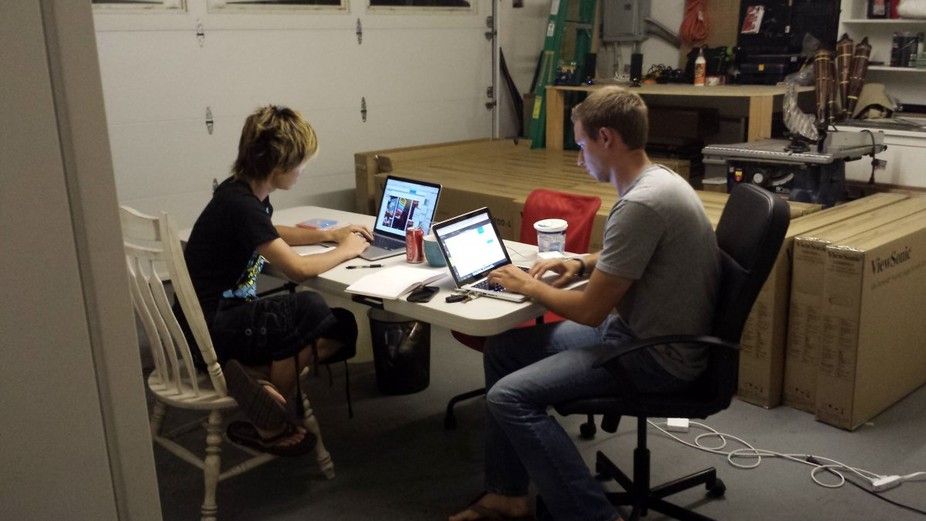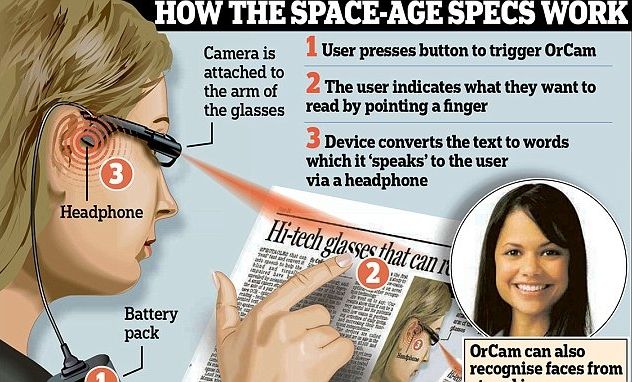Page 11210
May 6, 2016
Garage Biotech: New drugs using only a computer, the internet and free online data
Posted by Shailesh Prasad in categories: biotech/medical, computing, health, internet

By David Glance Director of UWA Centre for Software Practice, University of Western Australia
Pharmaceutical companies typically develop new drugs with thousands of staff and budgets that run into the billions of dollars. One estimate puts the cost of bringing a new drug to market at $2.6 billion with others suggesting that it could be double that cost at $5 billion.
May 6, 2016
Wow! SpaceX Nails Rocket Landing At Sea Again
Posted by Shailesh Prasad in categories: robotics/AI, space
For the second time in less than a month, SpaceX has landed the first stage of its Falcon 9 rocket on a ship at sea.
The booster settled softly onto the deck of SpaceX’s robotic “Of Course I Still Love You” droneship at 1:30 a.m. EDT (0530 GMT) on Friday (May 6), nine minutes after launching from Cape Canaveral Air Force Station in Florida on a successful mission to carry the Japanese communications satellite JCSAT-14 to orbit.
Chants of “USA! USA! USA!” erupted at SpaceX headquarters in Hawthorne, California as the Falcon 9 stuck its landing on the ship, which was stationed about 200 miles (320 kilometers) offshore in the Atlantic Ocean. [Photos: SpaceX Launches Satellite, Lands Rocket at Sea].
May 6, 2016
Building AI Is Hard—So Facebook Is Building AI That Builds AI
Posted by Shailesh Prasad in categories: computing, robotics/AI
By forcing computers to do more of the grunt work, the world’s biggest tech companies are accelerating how quickly AI enters the everyday world.
May 6, 2016
Japanese scientists have used skin cells to restore a patient’s vision for the first time
Posted by Shailesh Prasad in categories: biotech/medical, life extension
Japanese scientists have reported the first successful skin-to-eye stem cell transplant in humans, where stem cells derived from a patient’s skin were transplanted into her eye to partially restore lost vision.
The patient, a 70-year-old woman diagnosed with age-related macular degeneration (AMD) – the leading cause of vision impairment in older people – received the experimental treatment back in 2014 as part of a pilot study. Now, closing in on two years after the transplant took place, the scientists are sharing the results.
The researchers took a small piece of skin from her arm (4 mm in diameter) and modified its cells, effectively reprogramming them into induced pluripotent stem cells (iPSC).
May 6, 2016
Teaching computers to understand human languages
Posted by Shailesh Prasad in categories: computing, education, information science
Researchers at the University of Liverpool have developed a set of algorithms that will help teach computers to process and understand human languages.
Whilst mastering natural language is easy for humans, it is something that computers have not yet been able to achieve. Humans understand language through a variety of ways for example this might be through looking up it in a dictionary, or by associating it with words in the same sentence in a meaningful way.
The algorithms will enable a computer to act in much the same way as a human would when encountered with an unknown word. When the computer encounters a word it doesn’t recognise or understand, the algorithms mean it will look up the word in a dictionary (such as the WordNet), and tries to guess what other words should appear with this unknown word in the text.
May 6, 2016
How Artificial Intelligence Will Make You A Better Writer
Posted by Karen Hurst in category: robotics/AI
My dream is to finally have an AI solution that is a mixture of Dragon meets, Amy meets a great editor and pr person to help me co-author a series of novels that I have been waiting for many years to write, publish, market and promote. Right now, you have Dragon or an experimental AI that writes the novel without any human input.
Textio, a service that helps job recruiters by flagging both good and poor phrasing, now aims to be a real-time writing coach.
May 6, 2016
OrCam headset recognises faces, objects and reads words aloud
Posted by Karen Hurst in category: biotech/medical
Something so simple and finally done to help so many.
Beautiful
Researchers at the University of California said the new system dramatically improves the ability of people with limited sight to read books, menus, newspapers and emails.
Continue reading “OrCam headset recognises faces, objects and reads words aloud” »
May 6, 2016
How Google, Facebook employees get a brain boost
Posted by Karen Hurst in category: neuroscience
A new mode of operation for others to follow?
Mindfulness and meditation help Google, Facebook and others’ employees do their best work, says Happify CEO Tomer Ben-Kiki.

















